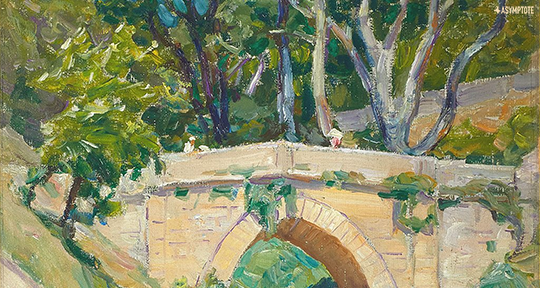Though not yet standard practice, bilingual editions of translated works are becoming increasingly welcomed by readers, both as a method of language engagement and an embodiment of a text’s various appearances and lives. In this following essay, Ian Ross Singleton discusses the power of reading and learning from a bilingual text, as well as the many dialogues that can transpire from this meeting of reader, writer, translator, and the worlds they each bring along.
I have bilingual books to thank for access to much of my knowledge of each and every language I utter—specifically Russian and, most recently, Ukrainian. I began to learn Russian about seventeen years ago. I was delighted to be able to access the originals, alongside helpful translations, in books such as Russian Stories / Русские рассказы, edited by Gleb Struve, which introduced me to the work of writers such as Evgeny Zamyatin and Fyodor Sologub, among others. Penguin also published a bilingual anthology of Russian poetry that became the basis of my education in this language, from which I memorized poems by Aleksandr Pushkin, Mikhail Lermontov, Marina Tsvetaeva, and Aleksandr Blok.
There are bilingual books by individual poets as well; Pushkin Threefold, translated by Walter Arndt (Dutton Books), gives the original Russian texts of Pushkin alongside literal English translations and verse translations. The book shows how translators must scrutinize, interpret, and create texts that are nonetheless complemented by ready comparisons with the original. Nativity Poems (Farrar, Straus and Giroux), a collection of the exile Joseph Brodsky, includes work written during the end-of-the-year holidays or discussing the story of Christ’s birth, and provides both a way of reading Brodsky’s original Russian poetry as well as elegies by poets who admired his writing, such as Derek Walcott, Anthony Hecht, and Seamus Heaney. Even the American poet Carol V. Davis wrote It’s Time to Talk About… / Пора говорить о…, a bilingual book of poems written in Russian and English, published in Russia by Simposium in 1997.
A bilingual book lends itself to a dialogue between two languages, the kind of negotiation that take place in a bi- or multilingual mind. It also creates a space for the kind of lingering that a bi- or multilingual person does with their words—the space a translator navigates in their relationship with both the original and their own renderings. It signifies companionship: of the author and the reader, of the author and the translator, and, if the reader is a language learner, of a teacher and a student. A bilingual book also does much to demonstrate the intimacy between the translator and their source texts—a relationship that involves a close scrutiny of language and meaning—and thus it also fosters the relationship between the two texts. READ MORE…

